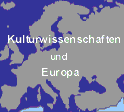
or the Reality of Virtuality

|
or the Reality of Virtuality Cultural Concepts |
|
Culture as a notion is multi-coloured and multifarious in the
wealth of its meanings. Research literature on the subject
reveals hundreds of different definitions. However, that is not
necessarily proof of a total lack of unity, but can be seen
instead as an expression of the great variety of aspects and factors
which constitute culture, or of which approach to culture we take.
Thus one can differentiate numerous aspects within the concept
of culture, although these are also closely interwoven with one
another. In general they represent traditional studies and scientific
disciplines:
Most cultural theories, and the concepts of culture they rely
on, embrace more than one of these aspects.
This favours or more truly necessitates the elaboration
of interdisciplinary and transdisciplinary approaches
and theories. It also advances the cause of cultural studies,
which for their part have provided a wide range of definitions
of 'culture'.
A meta-theoretical, synthetical method of approach incorporating multiple perspectives allows the elaboration of a range of conceptual characteristics within the notion of 'culture', and as many of these concepts show common features they can be taken to represent a transdisciplinary conceptual nucleus.
Broad, general definitions of culture are offered by Hansen and Sperber in their cultural studies research:
Culture
Sahlins offers a highly regarded but narrower definition, which is propagated by UNESCO
The etymological perspective is also relevant: in the Latin
'colere' means to cultivate, from which is derived 'cultus', that
which is cultivated or fashioned. Exposure in the modern world
to languages of various ethnic groups, and associated cultural
diversification, has also led to the augmentation of concepts.
When subject to historio-scientific examination, their linguistic
representations (for instance in German, English, French) demonstrate
differing contents. Cross cultural variation can immediately be
seen in a comparison of words such as "Kultur" and "Zivilisation"
in German, "culture" and civilisation" in English,
and "culture" and "civilisation" in French.
However the meaning of these concepts are converging across
languages as a result of international scientific contacts, cultural
exchange and other information processes. Schools of thought,
as with other cultural concepts, are not subject to either territorial
or linguistic borders.
|
|
|
|
|
|
|